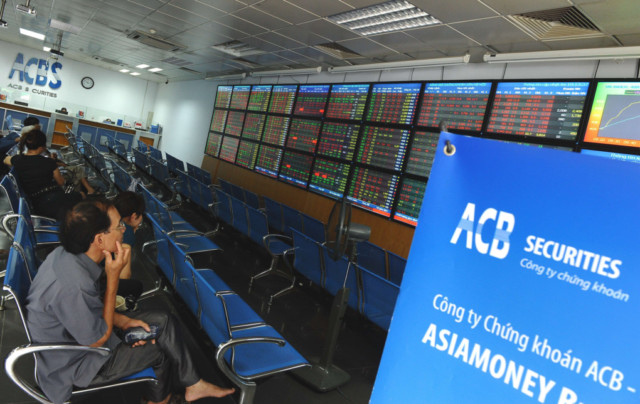
Singapore/ Manila: Asian stocks fell the most in almost three weeks and copper declined as Japan’s trade deficit widened more than expected and Dell forecast revenue that missed estimates. The Australian and New Zealand dollars fell, while Treasuries rose the most in a week.
The MSCI Asia Pacific Index sank 0.5 per cent at 1.34pm in Tokyo on Wednesday, the biggest drop since August 3. Japan’s Nikkei 225 Stock Average slid 0.4 per cent. Standard & Poor’s 500 Index futures fell 0.3 per cent, while contracts on the FTSE 100 Index slumped 0.9 per cent. Copper in London lost 0.4 per cent. The so-called Aussie and Kiwi weakened 0.3 per cent against the US dollar. US ten-year Treasury yields lost three basis points to 1.77 per cent, Bloomberg Bond Trader prices show.
Japan reported a July trade deficit of 517.4 billion yen (Dh23.9 billion) as Europe’s debt crisis curbed exports. Dell cut its full-year profit outlook as an anaemic global economic recovery curbs personal-computer demand. Luxembourg Prime Minister Jean-Claude Juncker, the head of the euro group of finance ministers, visits Greece on Wednesday to discuss the nation’s fiscal adjustment programme.
“The global growth picture is still weak and this is evidenced by sluggish economic and corporate data,” said Allan Yu, who helps manage about $9.4 billion (Dh34 billion) at Manila-based Metropolitan Bank & Trust. “These meetings in Europe will help set the global tone. If problems come about from these meetings, we will see a further deterioration in the global outlook.”
Gauges of energy, raw-material and technology companies in the MSCI Asia Pacific Index declined at least 0.8 per cent, the most of ten industry groups. Woodside Petroleum, Australia’s second-largest oil producer, slumped 3.6 per cent on first-half profit that missed analyst estimates.
Dell forecast
Technology shares fell after Dell forecast third-quarter revenue will drop two per cent to five per cent from the prior three- month period. That implies sales of between $13.8 billion and $14.2 billion, less than the $14.9 billion average analyst estimate, according to data compiled by Bloomberg.
Dell shares tumbled 4.5 per cent in extended New York trading. Lenovo Group, the world’s second-biggest maker of personal computers, sank 2.4 per cent in Hong Kong. Samsung Electronics, the world’s largest semiconductor maker, lost 1.3 per cent in Seoul.
Three-month delivery copper lost 0.4 per cent to $7,580 a metric ton on the London Metal Exchange. The contract rose as much as 2.4 per cent on Tuesday, the most since July 3. Rubber contracts in Tokyo lost 0.4 per cent.
European exports
Cotton futures sank one per cent after a three-day, 6.5 per cent surge. Consumption in China, the world’s largest user, may shrink 11 per cent this year as a deteriorating economy hurts demand and causes a build-up in commodities, according to Zhang Hongxia, chairman of Weiqiao Textile, China’s largest cotton-textile maker.
Trade data from Japan’s Finance Ministry on Wednesday showed shipments to China slipped 12 per cent in July from a year earlier, while those to the European Union fell 25 per cent, the biggest decline since October 2009.
The euro was at $1.2466 after touching $1.2488 on Tuesday, the highest level since July 5. German Chancellor Angela Merkel and French President Francois Hollande meet on Thursday to discuss Europe’s fiscal crisis, and both are set to talk separately with Greece’s Prime Minister Antonis Samaras later this week. Concessions are possible for Greece if Samaras shows a willingness to meet the main targets set out in his country’s bailout programme, a senior lawmaker with Merkel’s government said on Tuesday.
“Concerns about Europe’s debt crisis are strongly rooted because they haven’t solved the issues,” said Hiroshi Fujimoto, a fund manager at Tokyo-based Shinkin Asset Management Co, which oversees the equivalent of $6.6 billion.
“Investors see the global economy is weakening, led by the US and Europe and also China.”
The dollar gained versus 13 of 16 major peers before data that may show US existing home sales rose in July, damping prospects the Federal Reserve will add to stimulus. The Fed releases minutes of its most recent policy meeting on Wednesday.












